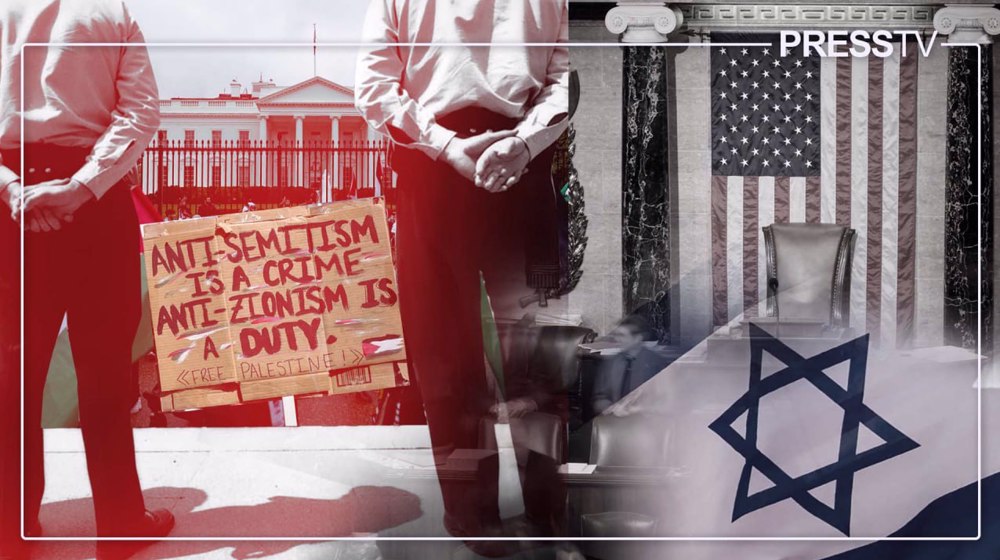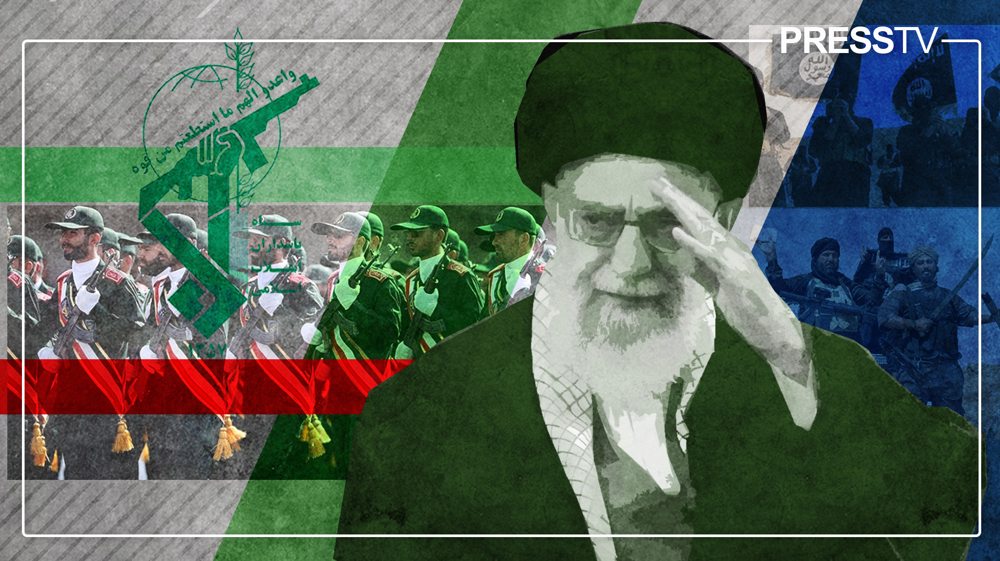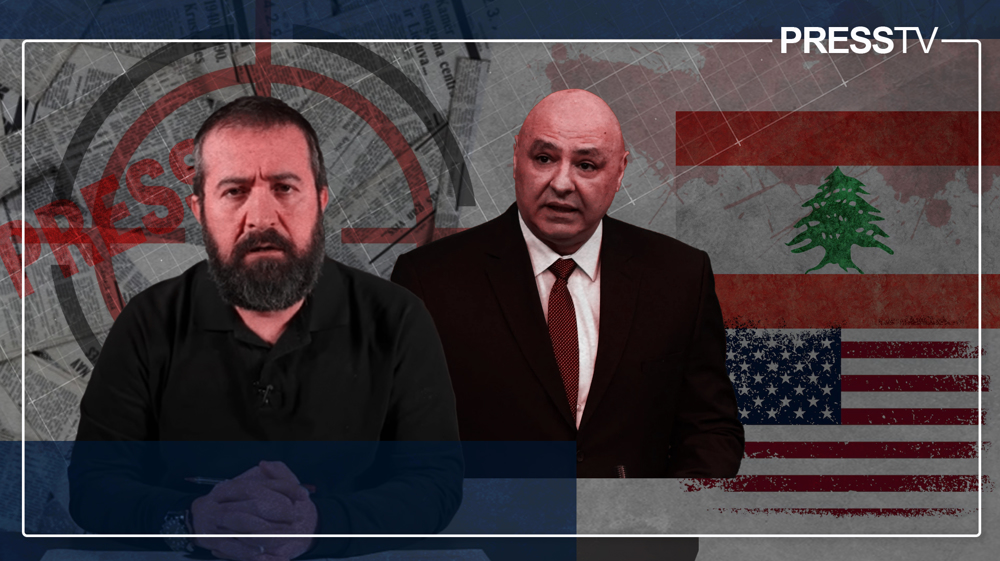For the US Congress, if genocide is business, it is good and warranted
By Shabbir Rizvi
In a shocking yet not surprising development, the US House of Representatives earlier this week declared in a resolution that anti-Zionism is the same as antisemitism.
The Republicans drafted the resolution passed by a 311-14 vote, with 92 representatives voting “present.”
The resolution sought to box in as many representatives as possible, under threats of labeling dissenters as antisemitic.
From the very get-go, run-of-the-mill Republicans and staunch Zionist Democrats went on the offensive, reiterating their false equivalency of anti-Zionism and antisemitism in order to continue the unfettering shipment of arms to the Israeli regime.
Republicans used the resolution as a battering ram against Democrats in order to make them fall in line or face smears as antisemites.
Ironically, this is the same party that has a roster of so-called “Free Speech Absolutists.” They should add an asterisk to that title that says only if you are a Zionist.
Although many Democrats admit to being adamant Zionists, some are a little less enthusiastic, or even critical, to equate anti-Zionism with antisemitism.
Some rightly identify Zionism as a political ideology, but fall short of addressing its colonial roots and corrosive doctrine that includes ethnic cleansing.
To invoke Congresswoman Pramila Jayapal, "muddying the waters about what antisemitism is completely wrong and unhelpful.”
The US political machine’s ideological alignment with the Israeli occupation, of course, is inherently rooted in money. Weapons manufacturers such as Boeing and Raytheon make billions through arms deals with the apartheid regime.
Through massive affiliate lobbying, these death-dealing corporations can have a unique say in US foreign policy, which is what defines their illicit relationship.
On top of the nearly $4 billion the US sends in military aid to the Tel Aviv regime yearly, the US has sent an additional 10 billion dollars in aid since October 7, which includes lethal bunker-buster bombs that have resulted in the deaths of thousands of Palestinians.
For US politicians, this resolution makes it abundantly clear: if genocide is business, business is good.
But, business can also have its hurdles. This resolution could have easily been passed almost any year since the creation of the occupying entity (despite a 1975 UN resolution defining Zionism as racism, now discarded).
Is the resolution being passed because of the severity of the humiliation the Zionist regime was dealt on October 7 by the Palestinian resistance led by Hamas?
If that was the case, the resolution could have been passed the numerous times the Lebanese resistance movement Hezbollah served the Israeli regime humiliating defeats over the years. It could have been raised during the first Gaza war. So why now?
The answer lies in the changing societal fabric of the United States. In the crosshairs of the resolution are college campuses. Since the outbreak of the Al-Aqsa Storm (also known as the Al-Aqsa Flood), student groups in solidarity with the Palestinian cause have become pivotal in bringing Palestine to the forefront and center of American college life.
These student groups have held teach-ins, boycotted Zionist professors, and held massive demonstrations and walkouts with demands to not only end the aggression on Gaza but bring forth an end to US aid for the regime that is aiding the genocide of Palestinians in Gaza.
Outside of that, groups of all ages that are supplemented by college groups have marched to the tune of millions across the country, not demanding a liberal “two-state solution” but rather an end to the occupation.
This is a much-needed development for the Palestinian cause, a development that shakes Zionists to the core.
In a leaked clip first obtained by Tehran Times, the head of the Zionist group “Anti-Defamation League” Jonathan Greenblatt noted that a serious threat the Israeli lobby faces is not between the political left and right, but rather young and old - as young people are slowly starting to be disillusioned with their government’s support for the occupation regime.
For Zionists like Greenblatt, the college campuses, and indeed even high school campuses, could be a potential threat to the regime's fake image. With the young unapologetically supporting the Palestinian cause, the lifeline of the Zionist regime that relies on US taxpayer money begins to dwindle.
It's no surprise that as this resolution passes, Ivy League Schools that saw a rise in Palestine solidarity actions are being grilled by US Congress. Presidents of these schools now face accusations of fostering antisemitism as they allowed pro-Palestine demonstrations on the campus.
The resolution has the capability of setting serious precedents within US law norms. If college campuses or other public institutions that rely on federal funding to operate do not comply with norms that battle calls against prejudice and racism, said funding can be pulled. Thus, with this resolution, the institution itself would be incentivized to silence anti-Zionists.
Meanwhile, Zionist politicians get to set double standards as they co-sign a license for the genocide of Palestine. It is worth mentioning that the bill was co-sponsored by Congressman Max Miller, who in the early days of the aggression on Gaza, said he wanted to see “it [Gaza] turned into a parking lot.”
The anti-Palestinian rhetoric can be found all over the resolution. It even goes on to comment on specific, popular slogans used at protests, to equate them as antisemitic.
The first part of the document states: “From the River to the Sea, which is a rallying cry for the eradication of the state of Israel and the Jewish people, has been used by anti-Israel protesters in the United States and globally.”
For the uninitiated, this slogan simply refers to the end of the apartheid, occupation system that Palestinians are subjected to day in and day out. Its origins mention nothing of the eradication of Jewish people.
Furthermore, the resolution incorrectly paints a peaceful protest as a violent one. Earlier in November, anti-Zionist Jewish activists held a peaceful protest at the Democratic Party headquarters, with demands for a ceasefire in Gaza.
This is how the resolution describes this event:
“Whereas, on November 15, 2023, anti-Israel protesters illegally blocked and violently attacked the Democratic National Committee headquarters, endangering the lives of individuals inside, including Members of Congress, and injuring 6 Capitol Police Officers.”
It was not mentioned how this was part of a candlelight vigil earlier in the evening, or that the protestors were well within their rights to be outside congregating.
The overreach of this resolution uses peaceful protests to justify political repression.
The normalization of this rhetoric can lead to the isolation of an individual for even publicly disagreeing with the Israeli regime policy or stating their solidarity with the Palestinian cause.
It is strikingly similar to the McCarthyite laws of the “Red Scare” era: someone even being suspected of a communist in the US could lose their job, or be arrested and jailed.
As with most overreaching resolutions, the people will not go down without a fight.
Already mobilizing, dozens of pro-Palestinian groups have moved to condemn the resolution. It is becoming evidently clear for many Americans that their representatives don’t really represent them - not as long as money can buy votes and political career-damaging smear campaigns can be used to get politicians in line.
More importantly, Americans are now uniting around the fact that they have power in numbers and that can lead to potential shifts in the state policy.
For example - Muslim Americans in Michigan, an electoral swing state, are vowing to not vote for Biden due to his complicity in the Gaza genocide.
Then, of course, there is the legal battle. A resolution is not a binding law - its purpose is to lay out a formal opinion by the US Congress. Supporting or dissenting comes down to how a congressperson’s vote will impact them later in their career.
So when push does come to shove, the legal arena is still available. CAIR (Council of American and Islamic Relations), for example, fights feverishly for Muslims who believe they were subjected to Islamophobia or even fired for their support for Palestinians.
Resolutions do not always hold up or influence the opinion of the court, as they are not law, just opinion.
As contradictions sharpen in the United States over the future of Palestine, more elements will be introduced by the state in order to shape public opinion on the side of the Israeli regime.
However, due to the growing popularity of the Palestinian cause, we can safely say the state definitely has its work cut out for them - the Palestinian cause is shining brighter than ever.
Shabbir Rizvi is a Chicago-based political analyst with a focus on US internal security and foreign policy.
(The views expressed in this article do not necessarily reflect those of Press TV)
Leader’s advisor warns of ‘deep’ retaliatory strikes into occupied territories
US Department of Justice releases millions of Epstein files, then pulls pages citing ‘rape’ by Trump
VIDEO | EU blacklists anti-terror organization
VIDEO | 44th Fajr Theater Festival underway in Tehran
VIDEO | Press TV's news headlines
VIDEO | Oil workers' march in support of reform of Venezuela's main oil law
VIDEO | Malaysians hold rally in front of Iranian embassy to condemn US, Israel threats
Israel to partially reopen Rafah border crossing after long closure










 This makes it easy to access the Press TV website
This makes it easy to access the Press TV website